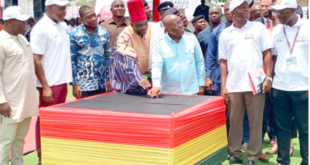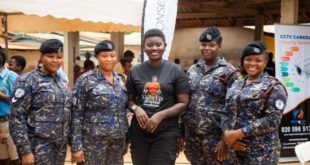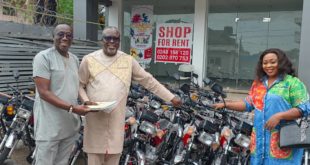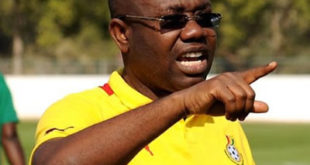
The Electoral Commission (EC) has backed calls for the establishment of a national framework to guide the use of social media in the country during national elections.
According to the Commission, such a framework would help reduce the high rate of mis/disinformation spread during elections, ensure the integrity of the electoral process and protect the democracy, peace and security of the country.
Jean Mensa, chairperson of the Electoral Commission, made the call at a seminar on the “Impact of Disinformation on Electoral Integrity, Peace and Security in Africa,” in Accra, on Thursday (19 October).
The seminar was organized by the Ministry of Foreign Affairs and Regional Integration in collaboration with the Ministry of Information and the Institute of Democracy and Electoral Assistance (IDEA).
It was attended by members from key public and private institutions including the judiciary, political parties, civil society organizations, as well as security and political analysts.
Mensa said one of the most pressing challenges confronting electoral management bodies today was the proliferation of fake news and disinformation campaigns on social media platforms.
“Indeed, the culture of spreading fake news or falsehood is not a new phenomenon but the advent of the internet and social media has allowed it to spread at a faster and more widespread rate, with a damaging consequence to electoral management bodies and elections,” she emphasized.
The chair of the EC noted that social media if not properly managed could pose a real threat to elections and destabilise the peace and security of the country.
Therefore, the Commission would be happy if regulation was put in place to manage social media use, especially during elections to check mis/disinformation.
“We, at the Electoral Commission of Ghana, support the development of a framework to guide the use of social media around elections and the peace and security of our respective countries.
“I join my voice to Elon Musk, and I quote him; “there should be regulations on social media to the degree that it negatively affects the public good,” she emphasised.
She, however, assured of the Commission’s commitment to deliver a free and fair general election in 2024.
“We have no doubt that, as was the case in 2020, we will carry the citizens along with us and build public trust and confidence in our work, and ultimately maintain the peace and security of our dear nation,” she assured.
Albert Kan Dapaah, Minister of National Security, explained that disinformation and misinformation ranked high on the list of security challenges confronting Ghana, today.
In West Africa, for instance, the Security Minister said, the overthrow of democratically elected governments and the emergence of military rule, was largely fueled by mis/disinformation.
Mis/disinformation, he added, had emerged as potent tools that were utilised for influence operations and malicious campaigns that undermined electoral integrity, peace and security.
These campaigns, Dapaah said, were orchestrated by a spectrum of actors, including both state and non-state entities, local and foreign actors, as well as political and nonpolitical players.
He, therefore, stressed the need for collaboration among all stakeholders, including civil society organizations and the media, in the fight against the phenomenon.
Dr. Kevin Casas Zamora, secretary-general of, the Institute of Democracy and Electoral Assistance (IDEA) described disinformation as a “virus” that exploited already existing weaknesses in the information system.
“This pandemic of disinformation is thus both deeply rooted and truly global,” he said.
“At the International IDEA, we are engaging with this growing challenge for democracy through our new work stream that looks especially at the intersection of digitalization and democracy, including how to build trust and the resilience of democratic institutions and processes against disinformation and other digital threats,” he stated.
“With this, we are implementing several projects aimed at protecting electoral integrity by advising election management bodies and other authorities on best practices, convening spaces for dialogue and providing technical assistance.”
Kojo Oppong Nkrumah, Minister of Information, urged critical thinking and responsible journalism in the era of digital information dissemination to help curtail the threats of mis/disinformation.
Shirley Ayorkor Botchwey, Minister of Foreign Affairs, called for a more nuanced and rights-based approach to addressing the issue of mis/disinformation.
“We must recognise that heavy-handed responses, such as internet shutdowns or network throttling of social media represent a grave infringement on fundamental human rights,” she noted.
Source: Asaaseradio.com
 Home Of Ghana News Ghana News, Entertainment And More
Home Of Ghana News Ghana News, Entertainment And More





